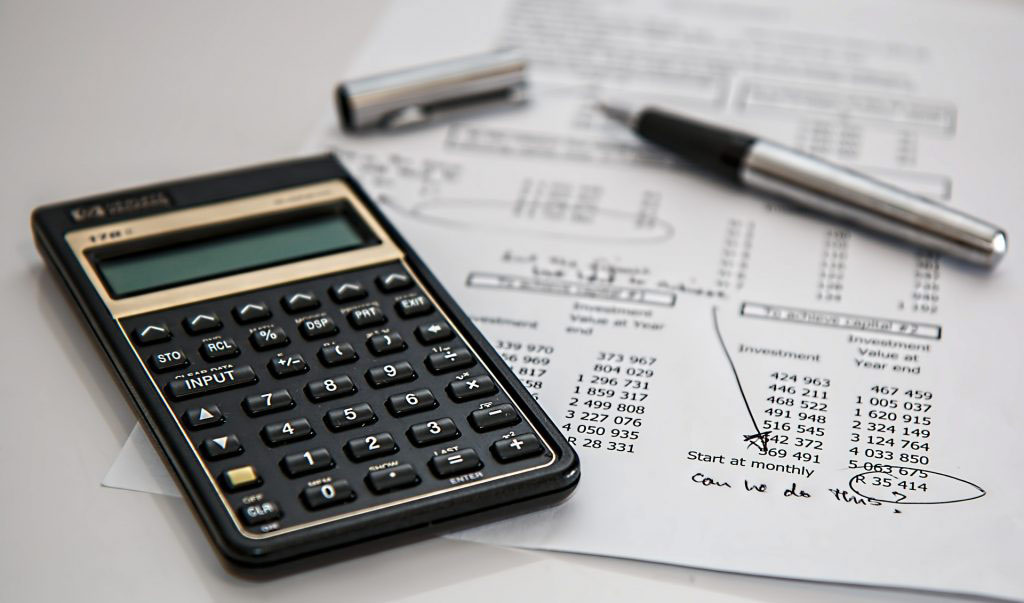If you are buying a property or are planning to do so you know that in Italy, together with the proposed purchase of the house, you will find a sum of money: the deposit (caparra). On this page, you can find out everything you need to know about the caparra.
The article is really long and complete, so you can jump directly to the topic that interests you with the index below.
Index
- What is the deposit and how does it work?
- How much is a deposit for the purchase of a house as a percentage?
- Can you make a purchase proposal for a property without a deposit?
- How do you pay the deposit for the home purchase: bank check, bank draft or bank transfer?
- The deposit in the purchase of a house between individuals
- Different types of deposits to buy a house
- Confirmatory deposit- Caparra confirmatoria
- How does the deposit to buy a house work?
- Penitential deposit – Caparra penitenziale
- Down payment – Acconto prezzo
- Trust Deposit – Deposito Fiduciario
- Return of the deposit for the purchase of a house
1. What is the deposit and how does it work?
The deposit, in civil law, is a sum of money or other fungible things paid as a mutual and mutual guarantee, against breach of contract or as a consideration in the event of withdrawal from the contract
Its function is to provide a sort of immediate compensation in the event of a breach of contract and must be returned or charged to the performance due in the event of compliance.
Put simply: if you do not respect the agreement made, you lose an amount equal to the agreed deposit. The famous rule that we all know: “if the buyer does not buy, he loses the deposit, if the seller does not sell he must return double the deposit received”.
ATTENTION: this is not always the case! By reading you will understand that there are several cases and that the rule written above is not always valid.
The deposit is not a cost but will be charged to the final price (i.e. it will be discounted from the price we have to pay).
After these first sentences, I already imagine many readers who, springing from their chairs, are wondering …
Will the taxes we pay on the deposit also be discounted by the registration fee we are going to pay? (see article on taxation)
2. How much is a deposit for the purchase of a house as a percentage?
There is no written rule that indicates how much to give as a deposit to buy a house.
It is an agreement between the parties: the buyer and the buyer and is established following a negotiation.
Obviously, the higher the amount of the deposit, the more the parties are linked by a common interest (including economic) to bring the transaction to a conclusion.
Here also the “practice” comes into play, or how much is the deposit that is usually given to buying a house. I can tell you that during my experience the average is around 10% of the agreed price, but I have really seen the most disparate agreements regarding this point.
Hypothetically, you could also give the entire agreed amount as a deposit and pay nothing at the signing of the notarial deed.
But if there is no written rule and it is an agreement between the parties, the next question that surely springs to mind is: can I buy (or sell) even without a deposit?
3. Can you make a purchase proposal for a property without a deposit?
The answer is yes!
However…
The agreement is very weak and both parties could pull back without fear of losing a sum of money (unless they are sued, but that’s another story).
In the first real estate transaction that I made, the proposal did not provide for a deposit (also because I did not have the beak of a penny) and was completed with the sale of the compromise.
Obviously, the seller was also very happy as she achieved a great price and also got the tax relief. It is the law of reciprocity!
Instead, pay attention to the opposite situation! If the deposit were too high, in jurisprudence it could be recognized as an advance on the price, this would lead to consequences from a legal and fiscal point of view. Useful services: consulting by clicking here.
4. How do you pay the deposit for the home purchase: bank check, bank draft or bank transfer?
The amount charged as a deposit can be paid with the following payment methods:
- Non-transferable bank (Assegno bancario non trasferibile) check the classic passbook you request at the bank.
- Cashier’s check, (Assegno circolare) you request at the bank and they deliver it to you by blocking the corresponding amount in your account in advance.
- Bank transfer, (Bonifico Bancario) immediate or not.
The assegno circolare (cashier’s check) is a credit instrument, therefore it gives the right to obtain a sum of money. It is therefore a safer check than an ordinary bank check because the relative amount is covered by the bank itself.
All methods are valid. The cashier’s check, of course, gives a guarantee of coverage to those who have to collect it.
5. The deposit in the purchase of a house without brokers
It essentially changes nothing compared to everything you have read or will read in this article.
There is only one thing you need to pay attention to.
If you are buying or selling a house, you must ensure the reliability of the counterparty you are dealing with. An agency, usually, should make preventive checks on the financial soundness of a subject (especially for the buyer).
Read Selling a house as a private individual (without an agency) in 7 steps.
6. Different types of deposits to buy a house in Italy
You may have noticed that until now I have always used the term deposit (caparra) and not a confirmatory deposit (caparra confirmatoria) as you might have expected.
It is not a mistake, but a deliberate trick! This is because the caparra is not the only type of deposit that can be used according to Italian law.
There are 4 (actually 3 + 1) types of sums of money (or fungible things) that can be paid, let’s see them all:
- Caparra confirmatoria – Confirmatory deposit
- Caparre penitenziale – Penitential deposit
- Acconto prezzo – Down payment
- Deposito fiduciario – Fiduciary deposit
7. Confirmatory deposit
The deposit is the most used “tool” by far, and is governed by Article 1385 of the Italian Civil Code:
Art. 1385. Caparra confirmatoria (Confirmation deposit).
“If at the time of conclusion of the contract, one party gives to the other, as a deposit, a sum of money or a quantity of other fungible things, the deposit, in case of fulfilment, must be returned or charged to the performance due.
If the party who gave the deposit is in default, the other can withdraw from the contract, retaining the deposit; if the party who received it is in default, the other can withdraw from the contract and demand double the deposit.
However, if the non-defaulting party prefers to request the execution or termination of the contract, the compensation for damage is governed by the general rules.“
8. How does the deposit buy housework?
I would say that the Italian civil code is very clear, but let’s try to explain it in other words.
In the event of a breach of contract by the party who contributed this amount (the buyer decides he no longer wants to buy the house), the seller can withhold the deposit he has collected.
In the event that the party who received the deposit (therefore the seller who no longer wants to sell) is in default, the buyer can request the termination of the contract and double the amount paid.
The adjective “confirmatory” implies a particularity: the party who would have been ready to comply with the commitments provided for in the contract may request the forced execution of the obligations deriving from the contract (or compensation for damage).
If the seller decides that he no longer wants to sell the house, the buyer could “oblige” him to transfer ownership of the property (by paying the agreed price) or to have compensation for the damage suffered.
9. Penitential deposit – Caparra penitenziale
This type of deposit has the sole function of payment for the withdrawal (with the same functioning as the confirmation).
Here is the article on the Italian civil code:
Art. 1386. Caparra penitenziale (Penitential deposit).
If the right of withdrawal is stipulated in the contract for one or both parties, the deposit has the sole function of payment for the withdrawal.
In this case, the withdrawing person loses the deposit given or must return double the amount he received.
As you can read in the article, there is no forced execution of the contract or compensation for damages.
This means that the defaulting party (who does not respect the contract) loses only the deposit.
10. Down payment – Acconto prezzo
The acconto prezzo (down payment) is the advance payment of part of the price and, in the event of failure to complete the final contract, it must be returned to the buyer.
It does not have the guarantee characteristics of the commitment made (as we have seen for the confirmation deposit).
According to what is foreseen in the co. 4 of art. 6 of the Presidential Decree 633/1972, the down payment must be invoiced at the same time as it is collected, subjecting it to VAT. This sum of money, which therefore has no penalty or compensation, is often used for buildings to be built or under construction.
11. Trust Deposit – Deposito Fiduciario
It can jokingly be called the “predecessor” of the deposit. This is always the amount paid to guarantee the commitment made.
Before accepting the proposal, the sum is called a free and non-interest-bearing fiduciary deposit, paid by a non-transferable bank check (assegno bancario non trasferibile) made out to the owner.
This amount will be valid as a confirmatory deposit and will be delivered to the seller, in case of acceptance of the proposal. Otherwise, it will be returned to the proposer.
The deposit usually takes place with the mediator or the notary, who will be able to deliver the sum to the interested third party (the seller of the property) only when certain conditions are met. The conditions precedent most often used are the acceptance of the purchase proposal or the positive resolution for the loan in support of the purchase transaction.
12. Return of the deposit for the purchase of a house
If you are having problems, you have doubts and you want clarifications, write your questions here.
The main question is: “Can I withdraw from a contract and what should I do about the deposit? Will they lose money or will they be able to exit without losses?”
There are mainly 4 ways that you can follow after entering into a contract regarding a property:
- Respect the contract. Don’t risk losing money.
- If you don’t comply with the contract. You lose the deposit (or you are obliged to pay back double the amount). In the case of caparra confirmatoria, you also risk being sued.
- Find an out-of-court settlement. It is an agreement with the counterpart in a good-natured way and without going to court. If you want to terminate a contract this is the best way to go. You could also get back the money you risk losing (or at least part of it) if the other party is willing to make a deal.
- Ultimately, if the other party does not want to find an agreement, you must prove that you cannot buy for a cause of force majeure. But be careful, it must be a reason (including an economic one) so large and unpredictable that it does not allow you to respect the contract in any way.
The ways to try to get the deposit back are the last 2. Obviously, if a suspension clause has not been fulfilled, such as a loan not obtained, the deposit (which would still be a fiduciary deposit) must be returned.
To conclude …
The deposit and home purchase in Italy are not trivial and certainly not simple.
I hope you have found your questions answered, if not you can contact me here.
We are constantly striving to produce high-quality content and give a pleasant experience to blog visitors. If you liked the article, share it with your friends and on social networks!
Jacopo Tartaglia
Real Estate Broker, founder and CEO.
info@valenteit.com or +39 379 1668 147




